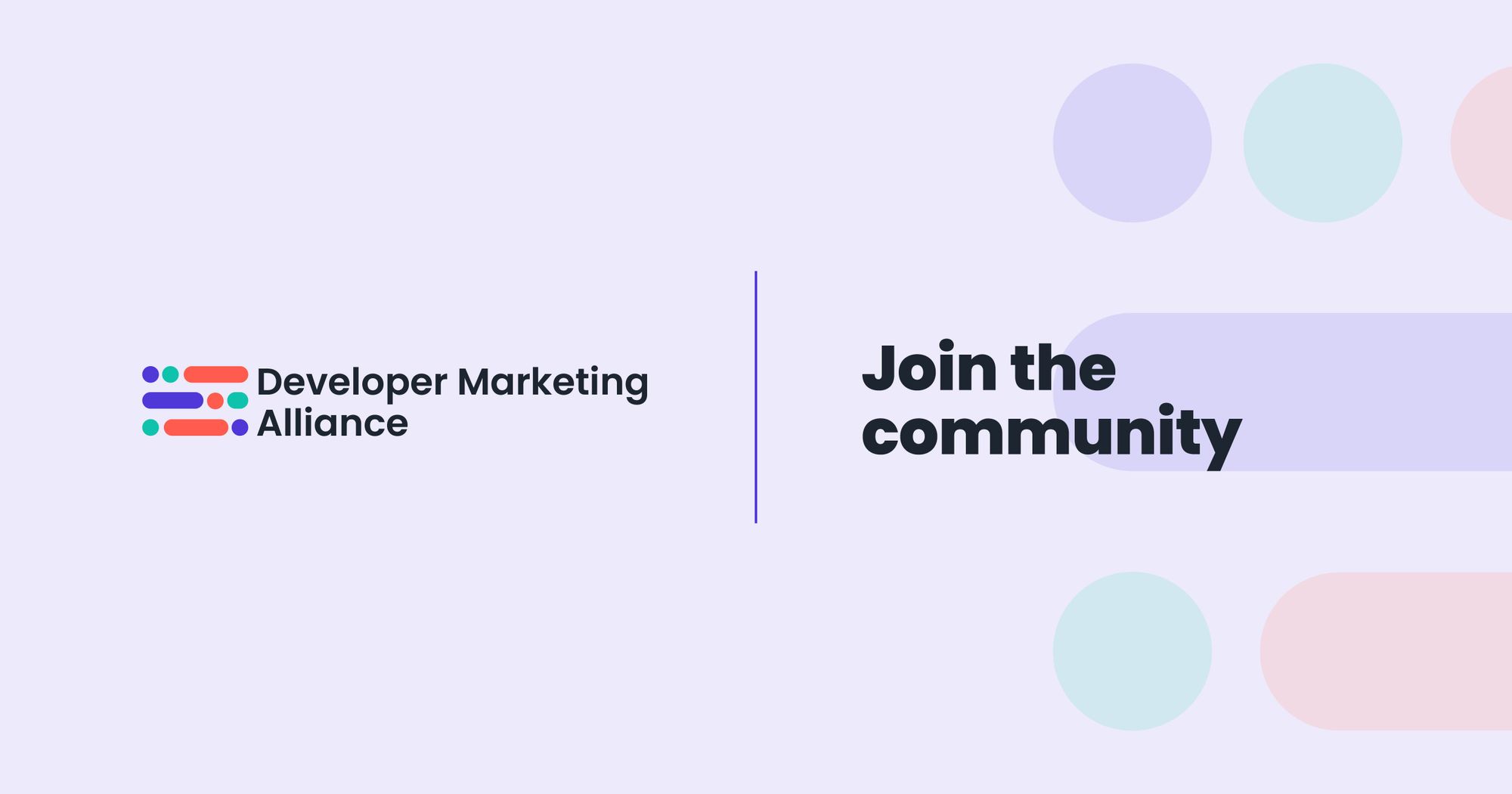During our fantastic Developer Marketing Summit in March 2022, Ginevra Mambretti, Product Marketing Manager, Developer Platform at Square, led a panel discussion about best practices in terms of messaging, working with developer influencers and all things developer marketing with two industry experts:
- Jeremy Castile, Senior Director of Product Marketing at Docker
- Nishanth Kadiyala, Contributor at Developer Marketing Alliance
Let’s get started. 👇
What is canary testing?
Jeremy Castile
Canary testing is super interesting for marketers and PMMs in the developer space. It's when software development teams release a software update to a subset of their users.
In a way, it's similar to A/B testing but for software developers trying to test in production in a real world scenario. They want to find bugs, see if their code has weaknesses or will break in a production environment, without impacting all of their users as they're just impacting a subset of users.
Then, they can essentially fix those bugs before they continue to roll out the software release to the rest of production.
It’s a best practice for DevOps and PMs can learn from this technique and leverage it to our advantage for message testing. Building your messaging and testing it in rural scenarios. Before a big release, you can test your messaging for a new product or launch, get feedback from a subset of users or customers and incorporate that into the messaging before you go to launch.

Nishanth Kadiyala
I love that idea of being able to pick existing mechanisms and best practices and other worlds and bringing it to the product marketing world. On similar lines, I want to introduce the idea of minimum viable marketing.
We have something called minimum viable product on the product side but, in both cases, the concept is that you want to test things out with the least amount of risk and investment.
When I recommend a messaging idea or a go-to-market strategy, my philosophy is that, once we have identified, we need to verify before we start amplifying it. In the verification phase, I go for quick and inexpensive mechanisms to test these ideas (quick website, A/B testing, email subject testing, go to a meetup, etc.).
At some point, you feel like it’s working and then we start amplifying, which could be writing a blog, a white paper, talking to analysts and press and have them start talking about the product.
Do you work with developer influencers?
Jeremy Castile
It's super important to have a network of trusted developer advocates or influencers. One of the most important reasons for that is to have an authentic developer voice.
Leveraging developer influencers with message testing, content creation, thought leadership and just general feedback on go-to-market is going to help you make your go-to-market that much more potent and effective and resonate much better with developers.
We have a program called Docker Captains. This is a group of folks who don't work for Docker but are experts about Docker. Some of them have their own large platforms and they do training.
We did a launch with a number of folks: people at Docker, Docker Captains, internal engineering teams, and influencers in the developer space outside of Docker. When we bring them in ahead of the launch, they champion our new products and our new pricing, and represent a voice of validation beyond just Docker talking about itself.
When we think about developer marketing for PMMs, don't be afraid to go out there and make connections with developers who are knowledgeable in the tools you provide, and see if you can pull them into your go-to-market.

Ginevra Mambretti
With developers, paid marketing doesn't work very often so it's very important to have advocates who can influence the others with an authentic experience.
Nishanth Kadiyala
Some of us may not have the luxury of having a wide and established community with plenty of advocates to choose from, and we may have to create that community from scratch.
When I say from scratch, it's not like there are no champions at all, it’s just a smaller pool. That's where it becomes critical to be able to bring those SMEs into the pool and get them excited about speaking about your product in various forums.
The way I went about it was by introducing new ideas into the market. I would go to meetups and chat with people about this idea, see how they're receiving it and take the feedback, write a blog about it and then share it back to them.
After that, they started having conversations about it on Twitter, so now we had a few people who understand this concept and I was able to tap into those contacts every time I needed some information in the product or written news.
Essentially, educate people, get them excited and they want to be part of the initiative.
Some people are motivated by technology, some people are motivated by fame, some people are motivated by giving back to the community so you have to understand what a particular person is interested in and position it accordingly and give them relevant opportunities.

Ginevra Mambretti
I can relate to both of your experiences, because Square has a very big developer community in the US, but I look after Europe. We just entered the European market and I feel like most of our influences are from the US and the narrative has a tendency to be very US-centric.
Do you manage these programs on a global scale as well?
Jeremy Castile
We have developers from all over the globe. Meetups are a great way to talk directly to users and get their feedback.
At Docker, our internal engineering team is a great resource for developers and leveraging them. We have folks working all over the globe. We work with our internal developers to develop content for developers.
Nishanth Kadiyala
While there are champions everywhere, sometimes it makes sense to prioritize and pick and choose from the community we most relate to. In my case, I used to pick from the US and Europe wherever possible.
What would be your favorite form of content when working with influencers?
Jeremy Castile
It's a number of different things. One of them is the channel the content will go to. Developers have a good nose for sniffing out content that's marketing-based where they're trying to sell something vs. value or education.
My rule of thumb for everyone creating content for developers is come at it from an educational value driven perspective. No nonsense.

Blogs definitely help and anything where developers can try on their own. In our technical blogs, we always provide code snippets or links to sample repos so developers can download the code, play with it and try it on their own.
Don't force developers to go out of their way to consume content; if you can build it into their workflow, even better.
Ginevra Mambretti
I totally agree. We run a very big event on a yearly basis where we also announced new releases for our APIs. Workshops are always popular as they create a lot of engagement. It's not passive content, you can actually play with it and use it.
How do you market a paid product?
Nishanth Kadiyala
It’s critical to be able to empathize with your end users. I've worked with agile teams in the past, and they are constantly running; developers are so busy and they're always on fire. That means they're looking for easier solutions that fit into their existing world.
From that perspective, they would want an easy onboarding, to try a product easily without having to get a bunch of approvals. As we make the onboarding easy, it becomes easier for them to like the product and adopt our solution.
Giving them enough value with the free trial is super important so they can experience the product as a whole. Help them solve the problem before you start selling to them. If there’s an open-source tool out there, show them why your product will do better than the open-source product.
Another important aspect is the channels they use. People are either googling, going directly to Stack Overflow or Hacker News, so having a presence in all these forums is critical. You want to become the thought leaders in those spaces and have people look up to you for any sort of problem they're trying to solve in that space.
From free to fee, it's a gradual conversation. If they don't buy and are happy with the free stuff, we will help them with that as well.
Jeremy Castile
Docker is developer-obsessed. We want to be the tool of choice for developers for building cloud native applications. Free to fee starts with the product strategy. If you're having conversations around free to fee, chances are the product strategy is already looking in that direction.
A lot of it has to do with zero friction onboarding for new developers. First, you have to start with the free part, so that's creating an experience, it's easy to onboard, developers can quickly get up and running into the product and they don't have to get out the credit card.
The product teams have focused on delivering a generous free tier so developers can get started quickly and get value out of the product at that level.

At Docker, with tremendous adoption and growth, it's a de facto tool for developers building cloud native applications. At the managers' level, or even higher, they have hundreds or even thousands of developers using this tool so, as a team, they want to invest in this product.
Then, it's about creating features for administrators and managers that makes it easier to scale the adoption of the tool. All of a sudden, it becomes much easier to pay for a subscription.
Essentially, the strategy we've taken is to make it easy for developers so they don't have to convince their boss to pay for this tool as it becomes obvious it’s a smart investment to boost productivity.
Ginevra Mambretti
A frictionless free trial is going to make all the difference. Over time, offering a generous tier for the free plan adds up in terms of loyalty, because you're offering so much and, at the end of the day, the switching cost is so high, and the user has had the time to learn how to use your products and how to really appreciate it so it doesn't make any sense to switch.
If you're not yet signed up to our Developer Marketing Slack channel, join now to network with other developer marketers, discuss topics you're passionate about, check out job offers, and more.








